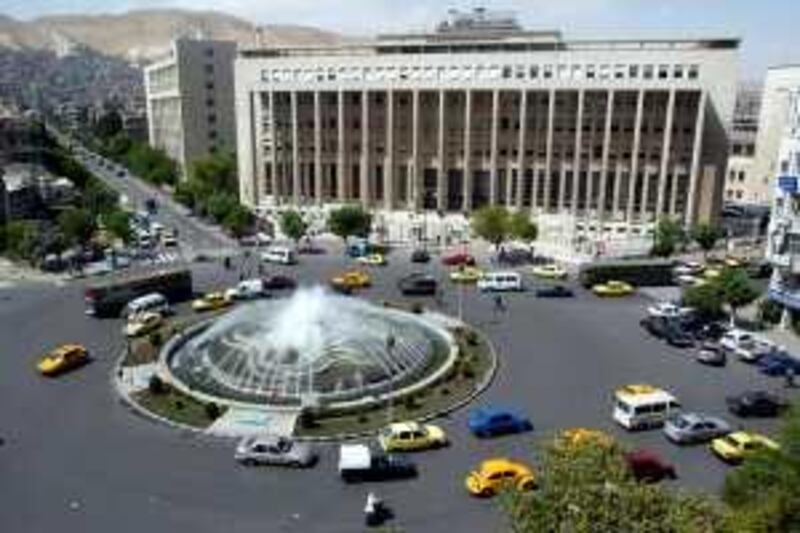Gulf Finance House (GFH), an Islamic investment company based in Bahrain, is pushing ahead with plans to start an Islamic bank in Syria and will soon begin construction on a major development near Mumbai. The moves mark a surprising turnaround for the company, which was recently forced to restructure debts after it ran out of money and could not secure refinancing from banks on US$400 million (Dh1.46 billion) of loans. Paying down debt and reforming GFH's business model have been central to an aggressive restructuring strategy under Ted Pretty, the chief executive.
The new commercial bank, to be called Syria Finance House, was announced on Saturday with capital of 15 billion Syrian pounds (Dh1.19bn). The bank is to be 60 per cent financed by GFH and its co-investors, while 10 per cent of it is to be owned by Syrian investors and 30 per cent listed on the country's stock market. The bank is now awaiting final approval from Syria's central bank. "Islamic commercial and investment banking in Syria promises great potential for growth with a significant demand for Islamic financial services and low penetration," Mr Pretty said. "The Syrian market enjoys excess liquidity, with deposits amounting to 41 per cent of GDP last year, which could be utilised in developing the country in line with the Syrian government's plans ambitions for socioeconomic growth and prosperity."
GFH yesterday announced the start of work on the infrastructure for its Mumbai Economic Development Zone project, launched in 2007 and covering 647 hectares located 65km from the country's financial centre. The project is to include a large energy city project, along with zones for telecommunications, software development and entertainment. GFH ran into trouble late last year because it took out short-term Islamic loans to help finance large, long-term property projects across the region, including in Bahrain, Qatar, Jordan, Tunisia, Libya and Algeria. As the global economic downturn set in and investors retreated, the value of GFH's projects declined, along with its ability to secure financing for them to continue construction.
The turmoil led the company to re-evaluate its business model and aggressively mark down its investments, leading to $607m in losses during the final three months of last year. It has also tackled its debt issues head-on under Mr Pretty, coming to terms with lenders to extend maturities on two Islamic loans, one for $300m and the other for $100m. GFH last month repaid two thirds of the first loan, delaying repayment of the remainder for six months. This month, the company repaid $20m of its $100m loan and spread out repayment of the rest over two years, with equal payments of $20m every six months. The company aims to sell assets to raise at least $250m in order to pay down debt.
The announcements of new investments in Syria and the start of work in Mumbai marked a turnaround for GFH, which was recently upgraded by Standard & Poor's to "CCC minus" from "selective default" after it renegotiated the second loan, a source at the company said. GFH plans other deals, the source said, pointing to an upcoming investment in transportation and logistics in the region. An analyst in Dubai said the Syrian bank and Mumbai project fell in line with a strategy to sell assets and go forward only with investments that could generate revenues or be sold to raise cash.
"Now they're focusing on selling assets and generating revenue at least for some projects they have in the pipeline," he said. afitch@thenational.ae





